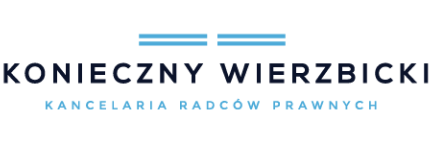
Negotiations on the regulation of crypto assets, which had been ongoing since March, ended at the end of June. This is another step that brings us closer to the uniform legislation on crypto assets throughout the EU. The MiCA regulation on the market in crypto-assets (MiCA) will introduce fundamental changes for cryptocurrency traders.
Definition of an entity’s activity in the crypto asset market based on MiCA
The economic activity itself as an exchange of crypto assets for fiat currency is defined in Art. 3 MiCA, it means entering into contracts with third parties to buy or sell crypto assets in fiat currency, which is legal tender, using equity. Pursuant to the new regulations, running a business as a cryptocurrency service provider will require a permit.
What should the application contain?
Only legal entities having their registered office in a Member State of the European Union will be able to apply for this authorization to provide cryptocurrency services. In order to obtain a permit to operate a cryptocurrency exchange office, you will need to submit an application to the competent authority containing:
- the name, including legal name and any other trade name to be used, the identifier of the legal entity of the applicant crypto asset service provider, the website operated by that provider and its physical address;
- the legal status of the crypto asset service provider seeking authorization;
- articles of Association of the Crypto Assets Service Provider applying for an authorization;
- an action program that specifies the types of crypto asset services that the crypto asset service provider seeking authorization wishes to provide, including where and how these services are to be provided;
- a description of the governance arrangements of the applicant crypto asset service provider;
for all natural persons who are part of the management body of the applicant crypto asset service provider and for all natural persons who directly or indirectly hold at least 20% of the share capital or voting rights, evidence of no criminal record for breaches of national law in the field of commercial law, insolvency law, financial services law, anti-money laundering law, anti-terrorism law and professional liability obligations; - confirmation that the individuals involved in the work of the governing body of the applicant crypto asset service provider collectively have sufficient
- knowledge, skills and experience to manage that provider and that they must devote sufficient time to the performance of their duties;
- a description of the applicant’s cryptocurrency service provider’s internal control mechanism, its risk assessment process and business continuity plan;
- a description – in technical and non-technical language – of the IT systems and security solutions used by the applicant’s crypto asset service provider;
- information confirming that the applicant crypto asset service provider has prudential security in accordance with the regulation;
- a description of the procedures used by the crypto asset service provider seeking authorization to resolve customer complaints;
- description of the procedure for the separation of crypto assets and client funds;
- description of the procedure and system for detecting market abuse;
- a description of the non-discriminatory trade policy if the crypto-asset service provider seeking authorization intends to exchange the crypto-assets for fiat currency or for other crypto-assets.
As you can see, the mere preparation of an application for a license to conduct business in the field of cryptocurrency exchange can be a real problem. After submitting the application, the competent authority will have 25 days for its formal assessment, during which time the entity applying for a permit may expect a request to remedy formal defects. Then, within 3 months, the authority performs a substantive assessment of the application and, on its basis, issues an appropriate decision.
It is worth remembering that the permit may be withdrawn in several cases, e.g. not to use the permit within 18 months of obtaining it or not to provide crypto-asset services for a period of 9 months.
What else is changing the MiCA regulation?
In addition to the above general premises, MiCA also provides rules for the specific exchange of cryptocurrencies for fiat currencies. First, providers of these services must establish a non-discriminatory commercial policy which indicates, in particular, the type of customers with whom they can deal and the conditions with which the customers must meet. Second, it will become necessary to publish crypto asset prices or how prices are determined. Third, the exchange orders will be executed at the price quoted when they are received. This means that the provision of the regulations allowing for a change in the exchange rate during the transaction will become invalid. Finally, fourth, suppliers will be required to publish the details

